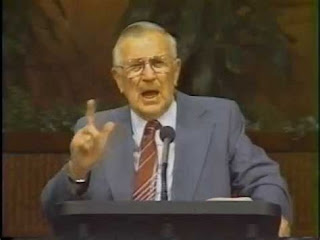(J. Vernon McGee)
The late J. Vernon McGee, famous radio preacher and pastor of the Church of the Open Door in downtown Los Angeles, once had this to say about divisions in the United States. “It’s not race that ultimately will divide this country. It’s rich and poor.”
My very religious mother used to listen to McGee regularly, and I always enjoyed hearing what he had to say in that thick Southern accent of his. He told the truth when he talked about the rich and poor in America but he might have also added war. War is itself an issue of the rich and poor.
You’d think you would hear a lot about the plight of the working class in the current presidential election and the growing divide between them and the 1 percent who rule the corporatocracy that the United States has become.
On the Democratic side, Kamala Harris raised hopes in the working class with her choice of Minnesota Gov. Tim Walz as her running mate. A plainspoken champion of a handful of labor and other left-leaning issues as governor, Walz would seem to broaden the appeal for Harris, whose record features few challenges to corporate rule. Yet Walz as a congressman was quite centrist, and he is as staunch a supporter of Israel as much of the rest of the Democratic Party leadership, even as Israel continues its genocide in the Gaza Strip and suppression of Palestinians in the West Bank.
War is an issue for the working class. They fight the wars that the nation wages, and if not on the battlefield they are forced to support those wars with their tax dollars.
You’d think war is hardly an issue in this year’s election if you simply read or listened to mainstream media. Yet both Democrats and Republicans have wedded this nation to Israel’s rapacious behavior by sending the weapons it uses to kill Palestinians. They’ve done the same in Ukraine, continuing the bloody destruction of that nation in an effort to weaken Russia and bring about the regime change they so desperately want. The same motivations prompt all the talk against China, a nation that poses no military threat to the U.S. but one that poses for them an unacceptable economic challenge.
In other words, Harris thus far has helped feed Wall Street and a military-industrial complex that thrive while Main Street suffers. There’s little indication so far that Harris-Walz would be any different than Biden-Harris.
When Donald Trump won the presidency in 2016, he promised to clear “the swamp” that is the Deep State in Washington, D.C. Instead he brought bankers and warmongers into his cabinet and did little other than bluster about how great he was making America again. Would another Trump Administration be different?
Trump’s choice for VP, J.D. Vance, brought some promise of working class sympathies as a result of his own Appalachian background and his book, Hillbilly Elegy. However, let’s not forget he went on to Yale Law School and an early career as a corporate lawyer and venture capitalist. To his credit, he does oppose further U.S. funding for the war in Ukraine. However, both he and Trump remain strong supporters of Israel, and Vance has strongly condemned pro-Palestinian protests on university campuses.
For the time being, the Trump campaign is floundering. It misses easy target Joe Biden badly and hasn’t yet found the message to successfully counter Harris-Walz.
What the working class of America want are leaders who truly represent their interests, who aren’t utterly beholden to Wall Street and the war machine, who mean what they say and say what they mean. It has been so long since they had such a leader they have to wonder whether one exists.


No comments:
Post a Comment